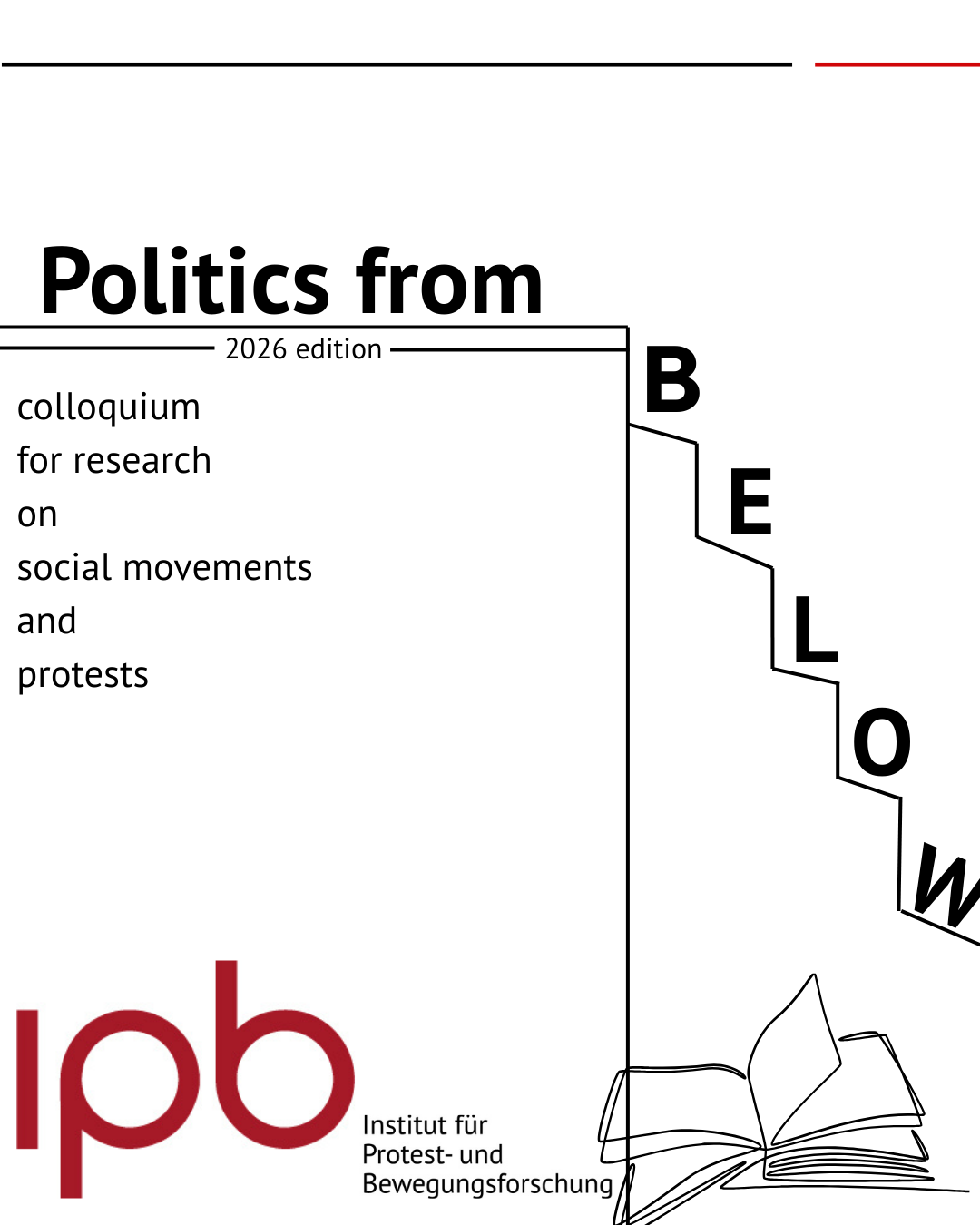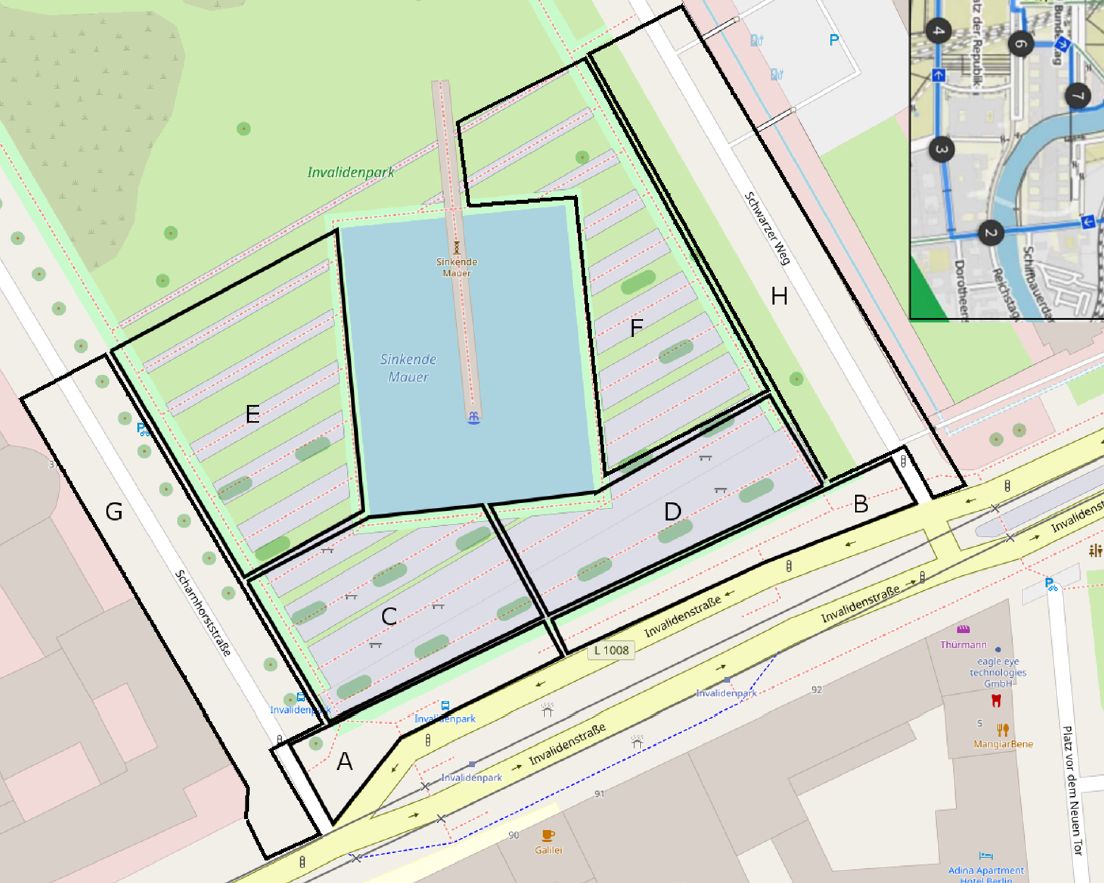Wie kommen soziale Bewegungen zusammen? Wie gelingt es geographische und ideologische Unterschiede zu überbrücken?
Der Aufstieg der globalisierungskritischen Bewegung suggerierte lange, dass die Trennung zwischen der Umweltbewegung, der Studentenbewegung, der Menschenrechtsbewegung und auch der Frauenbewegung in einem gemeinsamen „movement of movements“ überwunden werden konnte. Im Folgenden wurden Bewegungen oft isoliert untersucht. Die gerade in polarisierten Gesellschaften bedeutsame Frage nach den Bedingungen für den Erfolg oder Misserfolg von Allianzbildung blieb dabei auf der Strecke.
Gemeinsam mit dem Institut für soziale Bewegungen (Bochum) und dem ISA Research Committee on Social Classes and Social Movements(RC47) hat das Institut für Protest- und Bewegungsforschung (IPB) im April 2017 eine internationale Tagung zum Thema ‚Cross-Movement Mobilization‘ veranstaltet.
Im Anschluss daran planen die IPB-ForscherInnen Sabrina Zajak, Britta Baumgarten, Sebastian Haunss jetzt ein Special Issue in Social Movement Studies. Der Titel: The politics of alliances: The making and breaking of social movement coalitions in polarized societies. Die Deadline für Abstracts ist der 15. April 2018.
The politics of alliances: The making and breaking of social movement coalitions in polarized societies
Editors: Sabrina Zajak, Britta Baumgarten, Sebastian Haunss
This special issue will focus on processes and mechanisms of the making and unmaking of alliances among different grassroots, civil society, and social movement organizations. The formation of alliances is a key principle and basic mechanism of mobilization and the emergence of social movements. The rise of the global justice movement suggested that the separation between the environment, student, solidarity, third world, human rights, labour rights, or women’s movement has been overcome in “the movement of movements”. As a consequence, research mainly focused on social movements as the main unit of analysis.
This leaves two aspects underexplored. First, we don’t know why certain types of organizations or individuals cooperate with each other across ideological divides and new and old societal cleavages. This is a key issue today, as societies become increasingly divided and polarized, and alliance formation across classes, movements or very different organizational forms (parties, trade unions, grassroots) is an important bridge building process, (re-)creating solidarity and cohesion for societies as a whole.
Second, and equally important, there is a significant neglect of the dynamics and explanations of why alliances and certain groups stop to cooperate and how and why certain groups are explicitly kept out of joint actions. This becomes important as progressive social movement groups are increasingly confronted with the question of how to deal with non-progressive and right-wing groups, which might undermine or infiltrate certain protest events or actions. We urgently need to research the construction of mechanisms of exclusion in social movements and the struggles and dilemmas within movements resulting from it, as this will impact social movement dynamics for years to come.
We consider the dynamics and mechanisms of the making, unmaking and prevention of alliances as three facets of the politics of alliances, which imply strategic decisions, the exertion of power and internal debate about who should be part of the alliance and who should not. These politics of making and shaping alliances are a crucial factor influencing the structure and actions of social movement networks and the role social movements play in revising or strengthening processes of fragmentation in societies in the present and future. Despite its political and empirical significance, the phenomenon is still undertheorized and empirically under-researched.
This special issue aims at advancing this important research agenda. It invites theoretical contributions which help to understand forms, mechanism and effects of alliance politics. We are particularly interested in integrated, theory bridging approaches and innovations, e.g. from gender studies, organizational sociology, radicalism research, political economy or labour perspectives and papers based on rich empirical material.
More specifically we seek contributions focusing on:
- Boundary construction and mechanisms of exclusion: Who is intentionally or unintendedly kept outside? How are decisions made about who is in and who is out? What factors explain the specific actor constellation in certain contexts?
- Trade-offs and unintended consequences of alliance formation processes: What limiting effects can cooperation have e.g. on the constituencies or aims and organizational structures?
- Cross-movement alliances as transformative encounters: What do activists learn from each other and how does it transform their perspectives? What is the role of reflexivity for the reconstitution of the network?
- The breaking and de-construction of alliances: Why does cooperation end? How and why are links between actors cut? Can we identify and explain patterns of unlinking social movement actors?
- Societal impact: What are the societal implications of (un)making alliances e.g. in terms of solidarity, inclusion/exclusion, social cohesion and fragmentation?
Submission Process and Deadlines
Interested scholars should submit proposals of up to 300 words to the Editors. We will make a preliminary selection. Please submit abstracts by 15th of April 2018. We invite selected authors to submit articles of up to 8.000 words by 30 November 2018 (total to include all tables, references, figure captions, footnotes, endnotes etc.). Final publication decisions will then be dependent on normal peer review procedures and the decisions of the Editors. Please bear both the word length and the deadlines in mind when considering whether you would like to be part of the collection.
Approximate date of publication: 2019
Word length 8.000 words
All papers will be subjected to double-blind peer review. For further instructions see the “Instructions for Authors” and “Style Guide” provided by Social Movement Studies:
http://www.tandfonline.com/action/authorSubmission?journalCode=csms20&page=instructions
http://www.tandf.co.uk/journals/authors/style/SMS-Style-Guide.pdf
Please contact usif you have any further inquiries:
- Sabrina Zajak (Institute for Social Movement Studies, Ruhr-University Bochum): zajak@rub.de
- Britta Baumgarten (CIES-UIL, Lisbon): baumgarten@gmail.com
- Sebastian Haunss, (Research Center on Inequality and Social Policy (SOCIUM), University of Bremen): haunss@uni-bremen.de
Bild: Gonzale@flickr, Creative Commons 3.0



